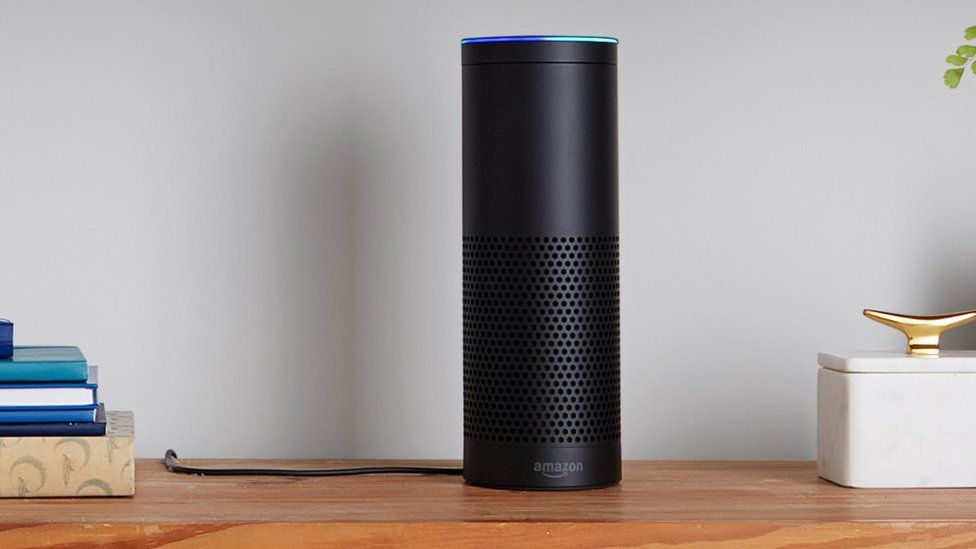Amazon resists Echo murder evidence call
- Published

Amazon is continuing to resist efforts by prosecutors in a US murder case to obtain recordings from one of its Echo smart speakers.
In its first formal legal response to the request for audio recordings to be handed over, Amazon said prosecutors had failed to establish it was necessary.
It said that it had to weigh customer privacy against such requests.
Prosecutors argue that the data could throw light on what happened.
Police want any information from the Echo that may be on Amazon's servers on the night of Victor Collins' death.
Privacy implications
Mr Collins was found floating face up in a friend's hot tub in November 2015. The friend, James Andrew Bates, has pleaded not guilty to first-degree murder.
The suspect called the Bentonville, Arkansas police department to say he had found the body.
According to court records, one of the deceased's eyes and his lips appeared to be swollen and suspected blood spots were found around the rim of the hot tub.
Detectives said they learned that music had been streamed to the back patio at the time of death, which they said may have been controlled via the Echo's smart assistant Alexa.
Lawyers for Amazon filed a motion last week asking a judge to throw out requests for Echo data to be handed over: "Given the important First Amendment and privacy implications at stake, the warrant should be quashed unless the Court finds that the State has met its heightened burden for compelled production of such materials," its court filings read.
And, in a statement to Associated Press, the firm added: "Amazon will not release customer information without a valid and binding legal demand properly served on us. Amazon objects to overbroad or otherwise inappropriate demands as a matter of course," the company said in a statement.
Early hours
The "always on" Echo speaker makes recordings of audio it hears from a fraction of a second before it detects a wake word - either Alexa or Amazon - until it judges the command to be over.
This audio is then transmitted to Amazon's computer servers, which interpret the request and tell it how to respond.
Although no recordings are meant to be made at other times, the device often becomes activated when it misinterprets speech as being its wake command.
Any captured audio might therefore have identified who was active in the early hours of the morning when the alleged murder is thought to have taken place, as well as what was said. Mr Bates claims to have been asleep at the time.
In December 2016, Amazon was issued with two search warrants but refused to share information sent by the smart device to its servers.
- Published28 December 2016
- Published9 January 2017